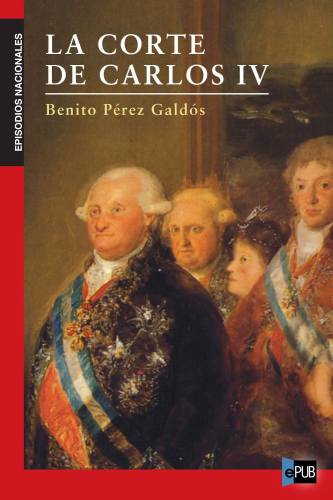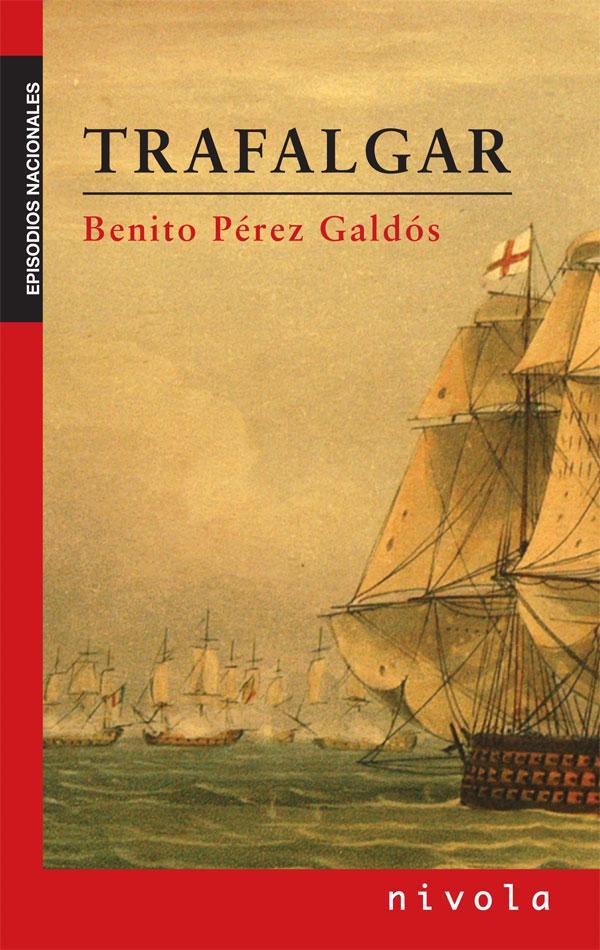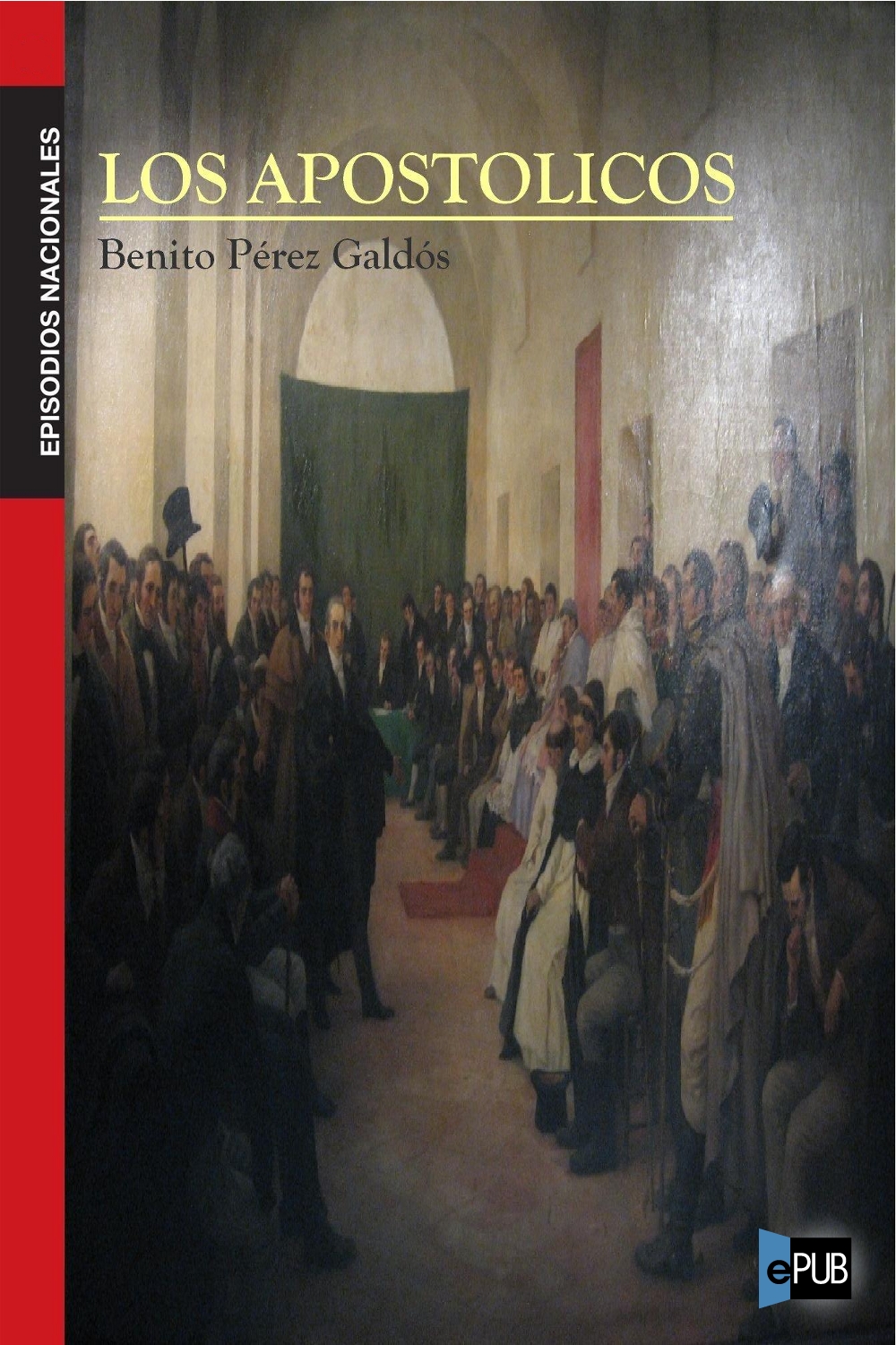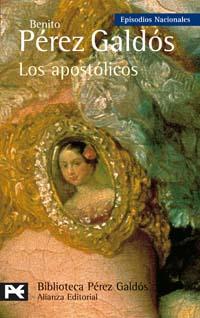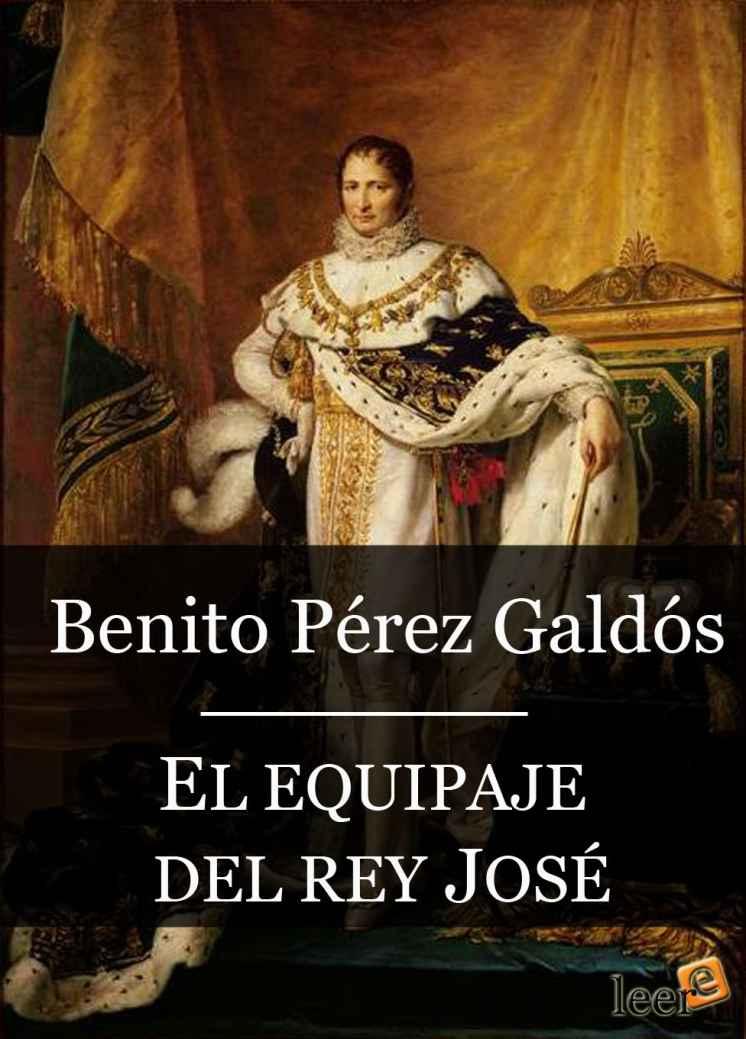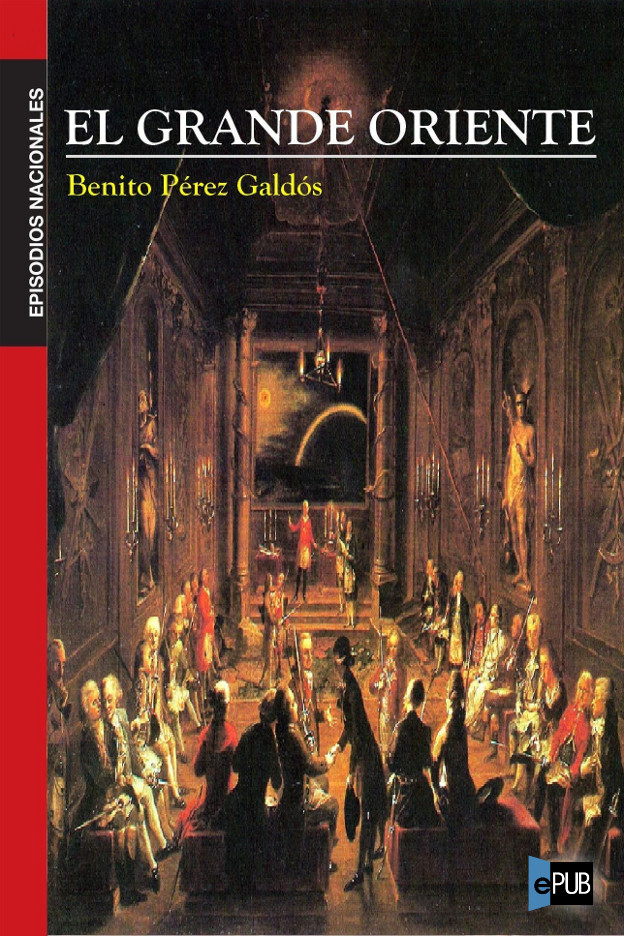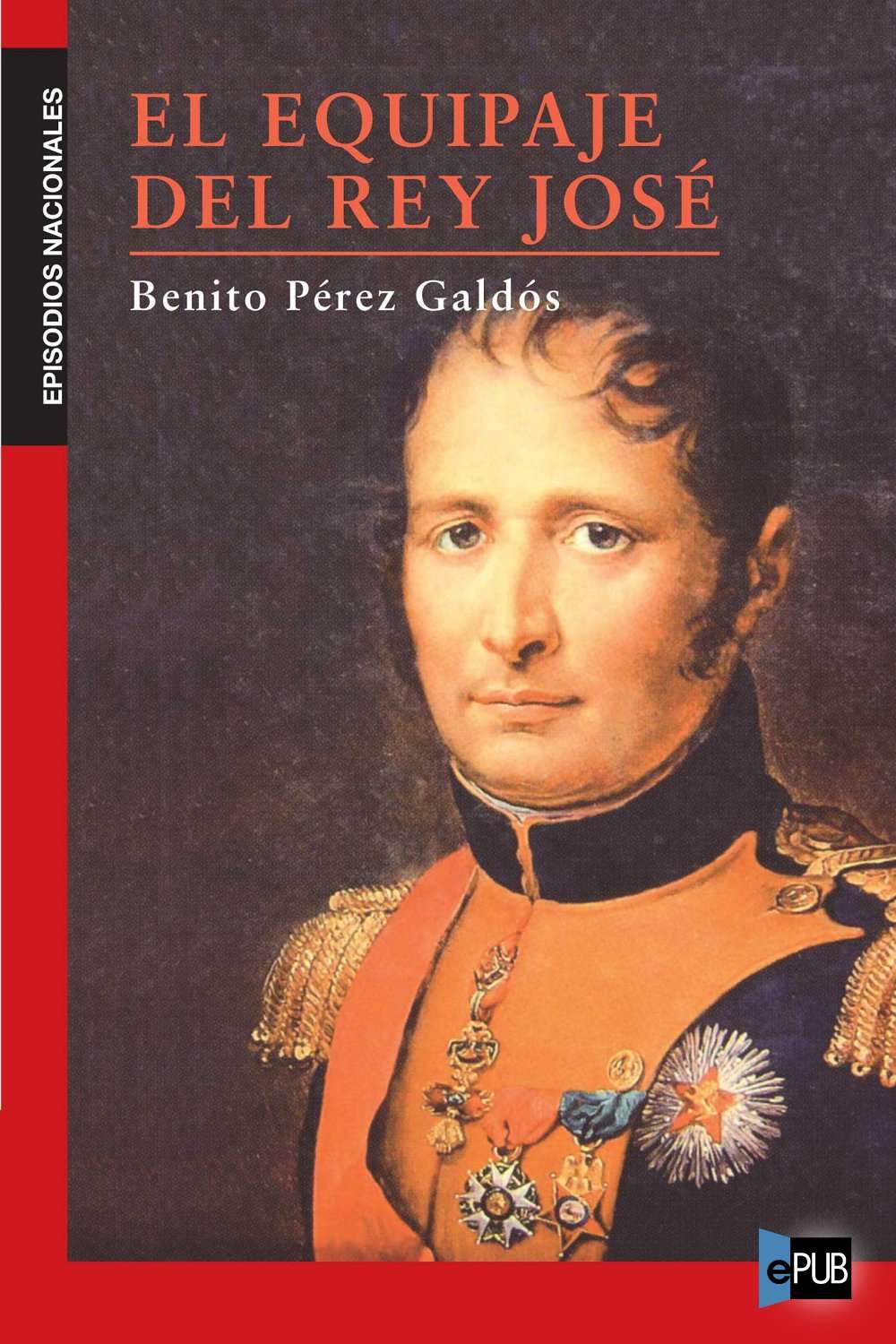oleebook.com
El Grande Oriente de GaldÃģs, Benito PÃĐrez
de GaldÃģs, Benito PÃĐrez - GÃĐnero: Ficcion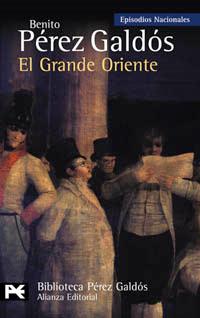
Sinopsis
EL GRANDE ORIENTE recoge, en su tÃtulo, el nombre de una activa sociedad secreta que intervino poderosamente en los acontecimientos que agitaron la vida polÃtica espaÃąola en el ÂŦtrienio constitucionalÂŧ que fue de 1820 a 1823. En este periodo, dominado por una agitaciÃģn polÃtica y social en la que siguieron encontrando caldo de cultivo los vicios ancestrales de la sociedad espaÃąola, Salvador Monsalud continÚa desgranando su azarosa trayectoria civil y sentimental.
Descargar
Descargar El Grande Oriente ePub GratisLibros Recomendados - Relacionados
ReseÃąas Varias sobre este libro
This is the fourth episode in the Second Series of GaldÃģsÂs Episodios, or the fourteenth out of a total of forty-six.
It is set in 1821, that is, during the Trienio Liberal, the three years (1820-1823) that followed the uprising called Levantamiento de Riego. In the previous episode, La segunda casaca, we witnessed this insurrection: Colonel Rafael de Riego (1784-1823) succeeded--after more than fifteen uprisings of various colours attempted by other military or politicians--, in spearheading a revolt that forced king Fernando VII to accept the 1812 Constitution which he had revoked when he came back to Spain in 1814. This liberal interlude finished when France sent in 1823 another army (theme for Episode sixteenth  Los Cien Mil Hijos de San Luis) to help Fernando gain back his absolutist rule.
We could expect that these three years during which the country functioned as a constitutional monarchy would have lured GaldÃģs when considering and writing his historical recreation: Liberalism had triumphed finally. And yet, they didnÂt. In this volume I found GaldÃģs tone, so far outstandingly equanimous, much more enervated and irritable than in the previous episodes. This liberal period failed, not just because it came to an end after so short a time, but because in itself it was loaded with problems. Two major ones are identified by GaldÃģs, although they both shared some common characteristics.
The Liberalists split into two currents: the exalted and the moderates (exaltados y moderados). The exalted or comuneros were seen by GaldÃģs, in their extremism and their impulse to violence, as execrable. There are several sections in which he expounds on the brutish characteristics of these ÂmobsÂ-- I have marked in several updates a few of these passages. The moderados, however, do not fare a lot better than the rioting crowds. For these are shown prey to personal ambitions and passions as well as captive to FreemasonryÂhencethe title, the Grande Oriente, or the Hispanicised branch of the French Grand Orient.
This organization then is the protagonist of this Episode; GaldÃģs devotes considerable sections to describing the functioning and scheme of the Freemasons, listing and exploring all its terms and complex system of symbols and structure. Clearly GaldÃģs has done his research for the novel is loaded with peculiar terms. I found these parts slightly tedious, which may be was part of the effect desired by the writer. Freemasonry comes across as somewhat ridiculous, at least in the way it was put into practice in Spain during the 1820s, for it had lost a great part of the original spirit of the Enlightenment and acquired and barren formality bordering with the grotesque. Reading this section I discovered that there is in Paris this museum, which I hope to visit next time I am in the always alluring city.
GaldÃģs provides fascinating depictions of Madrid active in its underground political activity in which cafÃĐs, such as the Fontana de Oro Golden FountainÂnow converted into a sort of Irish Pub , as well as various periodicals offer nuclei of associations. Indeed, GaldÃģsÂs first historical novel, La Fontana de Oro, from 1870, explores further this ambiance. I hope to read it at some point. I have also enjoyed loose references here and there either to particular sites in Madrid or to operatic events, in particular to those musical works based on Beaumarchais (RossiniÂs Barber of Seville or MozartÂs Le Nozze di Figaro, given that I had watched both of them recently in the Met Covid-19 daily broadcasts).
The character that provides the linking thread to the Second Series, Salvador de Monsalud, offers in this adventure greater complexity than that offered by Gabriel de Araceli of the First Series in the picaresque tradition. He is more modern, assuaged by self-doubt and deterred by frustrations. He still bears an idealism, that is easy to identify with GaldÃģsÂs own, and in this sense Monsalud can be seen to hold also a symbolic dimension: the country which is trying to find its way in history.
***********
14/32
Previous: La segunda casaca
Next: 7 de Julio19-century 2020 fiction-spanish ...more34 s1 comment Rafa SÃĄnchez417 89
La peripecia vital de nuestros protagonistas durante el reinado de Fernando VII prosigue con el trienio liberal de 1820 a 1823, en esta entrega vemos la actuaciÃģn disfuncional del gobierno mangoneado por las logias masÃģnicas. La descripciÃģn sarcÃĄstica que hace GaldÃģs del funcionamiento ridÃculo de las sesiones nocturnas en las diferentes logias, roza en la burla inmisericorde, la verdad es que pocas veces hemos visto a GaldÃģs tan hiriente como con la mamarrachadas y mojigangas de los masones, creo que porque no les perdona la oportunidad perdida para la naciÃģn. Los altos ideales de libertad y progreso son bastardeados por una caterva de botarates, muy parecidos a sus oponentes absolutistas, lo que darÃĄ finalmente lugar a la reacciÃģn del Rey FelÃģn.
Nuestro protagonista Salvador Monsalud va adquiriendo entidad como personaje, desesperado ante tanta incuria. 4 s JosÃĐ Manuel200 1 follower
Estamos en 1821. La monarquÃa absoluta de Fernando VII decepciona, incluso a muchos de los que fueron partidarios de su restauraciÃģn tras la derrota de los invasores franceses. En la Corte se multiplican las asociaciones polÃticas o seudopolÃticas (masones, comuneros) que ejercen de grupos de presiÃģn y rivalizan en colocar a sus afiliados en puestos de responsabilidad para intentar controlar el aparato de un estado desorganizado.
GaldÃģs entra a saco con la masonerÃa y sin restarle importancia al fondo de la cuestiÃģn (su ambiciÃģn por el poder, como la de otros muchos), ridiculiza sus formas y pompas. Lo mismo hace con las agrupaciones rivales. Entre unos y otros (o hunos y hotros, como dirÃa despuÃĐs Unamuno) EspaÃąa se va hundiendo. ÂĄQuÃĐ pena de letra "h", aparentemente muda pero que en este contexto huele a humillaciÃģn!
Nuestro protagonista en este episodio es Salvador Monsalud, a quien ya conocimos en otros anteriores. Y aparecen nuevos personajes, perfectamente descritos, que tendrÃĄn mayor protagonismo en los siguientes libros.
historical-fiction spain spanish-literature2 s Javier SÃĄnchez84 10
Intenso y trepidante episodio nacional en el que se entremezclan amorÃos con sucesos terribles y en el que describe el funcionamiento de las sociedades secretas que durante el trienio liberal conspiraban desde distintos frentes para combatir lo que suponÃan eran restos de absolutismo y servilismo, lo que les llevÃģ a cometer autÃĐnticas barbaridades en nombre de la libertad.episodios-nacionales1 David Jordan82 1 follower
DespuÃĐs de un volumen mÃĄs, sigo pensando que Monsalud es un personaje mÃĄs interesante y ambiguo que Gabriel.
En este volumen nos metemos a fondo en el universo de sociedades secretas, masones y vemos cuan complejo es el triennio liberal
Autor del comentario:
=================================



